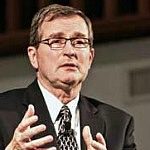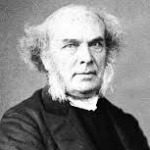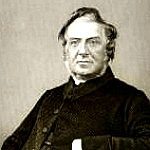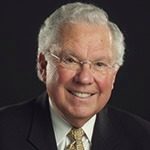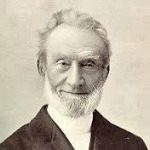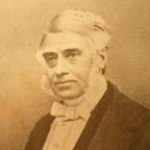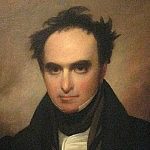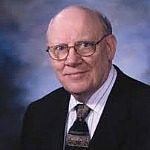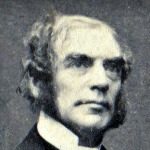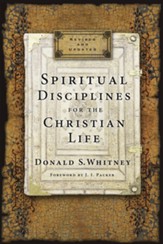Quotes about Books-Reading
Read not to contradict or confute, nor to believe and take for granted, nor to find talk and discourse, but to weigh and consider. Some books are to be tested, others to be swallowed, and some few to be chewed and digested.
In my library I have profitably dwelt among the shining lights, with which the learned, wise, and holy men of all ages have illuminated the world.
Let all writers have their due esteem, but compare none of them with the Word of God. We will not refuse their service, but we must abhor them as rivals or competitors. It is the sign of a distempered heart that loses the relish of Scripture excellency.
Make careful choice of the books which you read: let the Holy Scriptures ever have the preeminence. Let Scripture be first and most in your hearts and hands and other books be used as subservient to it. While reading ask yourself:
1. Could I spend this time no better?
2. Are there better books that would edify me more?
3. Are the lovers of such a book as this the greatest lovers of the Book of God and of a holy life?
4. Does this book increase my love to the Word of God, kill my sin, and prepare me for the life to come?
Seven benefits of books over preached sermons:
1. You may read an able preacher when you have but a mean one to hear.
2. Every congregation cannot hear the most judicious or powerful preachers, but every single person may read the books of the most powerful and judicious.
3. Preachers may be silenced or banished, when books may be at hand.
4. Books may be kept at a smaller charge than preachers.
5. We may choose books which treat that very subject which we desire to hear, but we cannot choose what subject the preacher shall treat.
6. Books may be at hand every day and hour, when we cannot have sermons but seldom, and at set times.
7. If sermons are forgotten, they are gone, but a book we may read over and over till we remember it; and if we forget it, may again peruse it at our leisure, or at our pleasure.
Quoted in: Why Read a Good Book? Christian Communicators Worldwide, www.CCWtoday.org. Used by Permission.
Before picking up a book, ask yourself: Would Christ approve of this book? Will it increase my love for the Word of God, help me to conquer sin, offer abiding wisdom, and prepare me for the life to come? Or could I better spend time reading another book?
Read as an act of worship. Read to be elevated into the great truths of God so that you may worship the Trinity in Spirit and in truth. Be selective about what you read, however. Measure all your reading against the touchstone of Scripture. So much of today’s Christian literature is froth, riddled with Arminian theology or secular thinking. Time is too precious to waste on nonsense. Read more for eternity than time, more for spiritual growth than professional advancement.
Not that you are to read no book but the Bible. All that is true and good is worth the reading, if you have time for it. All, if properly used, will help you in your study of the Scriptures. A Christian does not shut his eyes to the natural scenes of beauty spread around him. He does not cease to admire the hills, or plains, or rivers, or forests of earth because he has learned to love the God that made them; nor does he turn away from books of science or true poetry because he has discovered one book truer, more precious, and more poetical than all the rest together.
Avoid works that jest with what is right or wrong, lest you unconsciously adopt a false test of truth and duty, namely, ridicule, and so become afraid to do right for right’s sake alone, dreading the world’s sneer and undervaluing a good conscience and the approving smile of God. Let your reading be always select; and whatever you read, begin with seeking God’s blessing on it. But see that your relish for the Bible be above every other enjoyment, and the moment you begin to feel greater relish for any other book, lay it down until you have sought deliverance from such a snare and obtained from the Holy Spirit an intenser relish, a keener appetite for the Word of God (Jer. 15:16; Psm. 19:7-10).
Remember that it is not hasty reading, but serious meditation on holy and heavenly truths, that makes them prove sweet and profitable to the soul. It is not the mere touching of the flower by the bee that gathers honey, but her abiding for a time on the flower that draws out the sweet. It is not he that reads most, but he that meditates most, that will prove to be the choicest, sweetest, wisest and strongest Christian.
Books may preach when the author cannot, when the author may not, when the author dares not, yes, and which is more, when the author is not.
What is written is permanent, and spreads itself further by far – for time, place, and people – than the voice can reach.
When buying books remember the following:
1. Buy only the best books since you will only read a few hundred in your lifetime. When possible seek a recommendation first.
2. Don’t excessively fret over the price, since the cost of a book is always small if it impacts your life for good.
3. Buy to preserve the truth for your family or some deserving friends or institution in the future, for they will inherit your library when you die.
4. Never let the reading of books replace the reading of the Bible. Instead of one or the other, do both.
5. Let a good book humble you and not make you proud, by seeking God in what you read.
Why Read a Good Book? Christian Communicators Worldwide, www.CCWtoday.org. Used by Permission.
It is far more important, and will do you far more good, to read a smaller number of Christian books which have been well-tried and have proved their value than to develop the Athenian spirit which is attracted to anything so long as it is new (cf. Acts 17:21).
Healthy Christian Growth, by Permission of the Banner of Truth Trust, Carlisle, PA. 1991, p. 10.
If light reading is our passion, then Owen’s prose style is not for us. His paragraphs are tightly packed; his thoughts demanding. His analysis of the heart cannot be skimmed quickly. But in our age of constant and instant upgrade to faster models, this is exactly what many of us need: a slow read, a careful application- allowing ourselves to feel the wounds made by Owen’s sensitive eye surgery, and, as a result, discovering that we see our God more clearly, that we love His Son more fully and serve Him in the power of the Spirit more thoroughly. If this is what we need – as it surely is – Owen, though dead, still speaks, and in providence of God is still there to help and guide us.
In books for spiritual edification, much depends upon the manner in which they are read. If taken up carelessly and read in a light mood, they are likely to do little good. The attention will not be fixed, nor the heart engaged, nor the conscience awakened. You must be somewhere alone with God – where you can have leisure and opportunity to commune with your own heart and with Him – where you can pause, reflect, and pray, unobserved by a single fellow-creature – where you can stop, examine, meditate, and it may be, weep. Before you read another chapter, put down the volume, fall upon your knees and agonize in prayer, that the perusal may be blessed to your soul. Take the book with you into your closet. Read it in your most serious hours, in your greatest privacy, and in the most solemn manner.
In a letter written from prison, Paul requested Timothy to bring him “the books” (2 Tim. 4:13). Charles Spurgeon, the nineteenth-century “prince of preachers,” expressed amazement at such a request from Paul: “He is inspired, and yet he wants books! He has been preaching at least for thirty years, and yet he wants books! He had seen the Lord, and yet he wants books! He had had a wider experience than most men, and yet he wants books! He had been caught up into the third heaven, and had heard things which it was unlawful for a men to utter, yet he wants books! He had written the major part of the New Testament, and yet he wants books! Spurgeon then reminds us, “He who will not use the thoughts of other men’s brains proves he has no brains of his own.”
Worship Matters, Crossway Books, a division of Good News Publishers, Wheaton Illinois 60187, www.crosswaybooks.org, 2008, p. 29. Get this book!
Interior decorators tell us that the items on a coffee table reveal the personality of the family. With this thought in mind, in our home my wife and I have open Bibles on our coffee tables in the living and family rooms so that all visitors will know that the Word of God shapes the personality of our home. Remembering that children become readers by picking up books around the house and seeing their parents reading, we also keep Christian books we are reading next to the Bible on the coffee table.
How to Read a Christian Book, 2001, p. 31. Used by permission of Baker, a division of Baker Book House Company.
An adventure awaits us in reading Christian books. Once we see the connection between the Word of God and the books we read, we will embark on a search and discovery mission in the expanding field of human knowledge, where all truth is God’s truth and Jesus Christ is the center that holds all things together. A nonreading Christian is a contradiction in terms. With the Bible as our primary source, we read other books that serve as teaching tools for the Holy Spirit in order that we may become men and women of God, “thoroughly equipped for every good work.”
How to Read a Christian Book, 2001, p. 27. Used by permission of Baker, a division of Baker Book House Company.
While quality writing is important when judging a book, Christian books should meet an even higher standard. Because the canon of Scripture is the final authority for the revelation of God’s truth, all other Christian writing is commentary. This means that all Christian writing should be judged against the standard of the Word of God.
How to Read a Christian Book, 2001, p. 44. Used by permission of Baker, a division of Baker Book House Company.
Immature readers of Christian books will take one book and view it as the summation of whole truth. More mature readers, however, will hold one book in abeyance until they have a chance to read other sources on the same subject. Then, always looking through the lens of the God-breathed Word, they put different viewpoints into the perspective of the whole, relate the viewpoints one to another, and draw them together into a composite conclusion without sacrificing the truth.
How to Read a Christian Book, 2001, p. 67. Used by permission of Baker, a division of Baker Book House Company.
If the college you visit has a bookstore filled with t-shirts rather than books, find another college.
Learn to read critically. Reading is not merely an exchange of information and ideas. It is a conversation between the author and the reader. Think of reading as a silent but intensive conversation. As you read, ask the author questions and filter the book’s content through the fabric of your convictions. Argue with the book and its author when necessary, and agree and elaborate when appropriate.
Treat the book as a notepad with printed words. In other words, write in your books. Make the book your own by marking points of agreement and disagreement, highlighting particularly important sections of text, and underlining and diagraming where helpful. Unless your specific copy of the book has some historical or emotional value, mark it up with abandon.
The Conviction to Lead, Bethany House Publishers, 2012, p. 102, Used by Permission.
Get this book!
There will never be enough time to read all that you want to read, or even all that you think you ought to read. Just keep reading. Set aside segments of time devoted to reading and grab every spare minute you can find. Keep reading materials with you at all times, or at least close at hand.
God is the author of the Bible, and only the truth it contains will lead people to true happiness. A Christian should read this precious Book every day with earnest prayer and meditation. But like many believers, I preferred to read the works of uninspired men rather than the oracles of the living God. Consequently, I remained a spiritual baby both in knowledge and grace.
The Autobiography of George Muller, 1984, p. 21. All quotations taken from books published by Whitaker House are used with permission of the publisher. Whitaker House books are available at Christian bookstores everywhere. Get this book!
This is a reading age – and as books are cheap, largely read, and easily procurable, the press has come to embrace a wider circle and to possess a greater influence on the public mind than any other medium of communication. The Christian press has spread itself in all directions, and exercises an influence scarcely inferior to that of the pulpit. Works, therefore, written by gracious men, whether living or dead, may be viewed as exercising a ministry of their own, running, as it were, parallel to that of the pulpit, and in harmony with it – but possessing the advantage of penetrating into places, and speaking on occasions where the voice of the living preacher cannot come, as well as of being accessible at all times, lying silently and unobtrusively on the table or the bookshelf, ready to be taken up or laid down at pleasure – and, if we have well chosen them, our trustiest friends and wisest counselors, who will always tell us the truth without fear and without flattery.
Value all books in proportion as they are agreeable to Scripture. Those that are nearest to it are the best, and those that are farthest from it, and most contrary to it, the worst.
Indeed, if we read merely to stock our heads with ideas, to feel superior to others, or to appear learned, then our reading is useless and vain.
Spiritual Leadership, Moody Publishers, 1967, p. 103. Get this book!
If a man is known by the company he keeps, so also his character is reflected in the books he reads. A leader’s reading is the outward expression of his inner hungers and aspirations.
It seems odd that certain who talk so much of what the Holy Spirit reveals to themselves, should think so little of what he has revealed to others.
Next to the Bible, the book that I value most is John Bunyan’s Pilgrim’s Progress. I believe I have read it through at least a hundred times. It is a volume of which I never seem to tire.
Master those books you have. Read them thoroughly. Bathe in them until they saturate you. Read and reread them, masticate and digest them. Let them go into your very self. Peruse a good book several times and make notes and analyses of it. A student will find that his mental constitution is more affected by one book thoroughly mastered than by twenty books he has merely skimmed. Little learning and much pride comes from hasty reading. Some men are disabled from thinking by their putting meditation away for the sake of much reading. In reading let your motto be “much not many.”
In the first years of George Mueller’s Christian life, he spent more time reading the works of men than the Scriptures. Up until the day of his conversion he could not even recall reading one chapter of the Book of books. However, in the ninety-second year of his life he told his biographer that for every page he had read in any other book he was sure that he had proportionately read ten pages of the Bible. During the last twenty years of his life he read through the Scripture four or five times annually. In studying Mueller’s life I have discovered that his devotion and delight in God’s Word was the secret to his faith and life of prayer.
A Journey to Victorious Praying, Moody Publishers, 2003, p. 79.
Get this book!
Why does today’s Christian find the reading of great books always beyond him? Certainly intellectual powers do not wane from one generation to another. We are as smart as our fathers, and any thought they could entertain we can entertain if we are sufficiently interested to make the effort. The major cause of the decline in the quality of current Christian literature is not intellectual but spiritual. To enjoy a great religious book requires a degree of consecration to God and detachment from the world that few modern Christians have. The early Christian Fathers, the Mystics, the Puritans, are not hard to understand, but they inhabit the highlands where the air is crisp and rarefied, and none but the God-enamored can come.
Be careful what books you read, for as water tastes of the soil it runs though, so does the soul taste of the authors that a man reads.
The printed page never flinches, it never shows cowardice; it is never tempted to compromise. The printed page never gets tired; it never gets disheartened. The printed page travels cheaply- you can be a missionary for the price of a stamp. It requires no building in which to operate. The printed page works while you sleep. It never loses its temper in discussion. And it works when you are gone from the scene. The printed page is a visitor that gets inside the home and stays there. It always catches a man in the right mood. It speaks to him only when he is reading it. It never answer’s back and it sticks to the point.
If religious books are not widely circulated among the masses in this country, I do not know what is going to become of us as a nation. If truth is not diffused – error will be. If God and His Word are not known and received – the devil and his works will gain the ascendancy. If the evangelical volume does not reach every hamlet – the pages of a corrupt and licentious literature will. If the power of the Gospel is not felt throughout the length and breadth of the land – anarchy and misrule, degradation and misery, corruption and darkness, will reign without mitigation or end.
What has exceedingly hurt you in time past, nay, and I fear, to this day, is lack of reading. I scarce ever knew a preacher who read so little. And perhaps, by neglecting it, you have lost the taste for it. Hence your talent in preaching does not increase. It is just the same as it was seven years ago. It is lively, but not deep; there is little variety; there is no compass of thought. Reading only can supply this, with meditation and daily prayer. You wrong yourself greatly by omitting this. You can never be a deep preacher without it, any more than a thorough Christian. Oh begin! Fix some part of every day for private exercise. You may acquire the taste which you have not; what is tedious at first will afterward be pleasant. Whether you like it or not, read and pray daily. It is for your life; there is no other way; else you will be a trifler all your days, and a pretty, superficial preacher. Do justice to your own soul; give it time and means to grow. Do not starve yourself any longer. Take up your cross and be a Christian altogether. Then will all the children of God rejoice (not grieve) over you, and in particular yours.
Beware that you are not swallowed up in books! An ounce of love is worth a pound of knowledge.
My books are my tools, and I use them. I cannot afford to be a book collector; neither the budget nor the
diminishing shelf space…permits such a luxury… I enjoy my library. Each book is a friend that converses
with and teaches me. Better to have fewer of the best books than to clutter your shelves with volumes that cannot
serve you well. Above all, love your books, use them, and dedicate all you learn to the service of Jesus Christ.
Pray against a thirst for light and trifling reading, that strange and sinful inconsistency of so many, the certain tendency of which is to starve the life of God in the soul, to engender a distaste for spiritual nourishment, for the Word of God, for holy meditation, and for Divine communion and fellowship.


